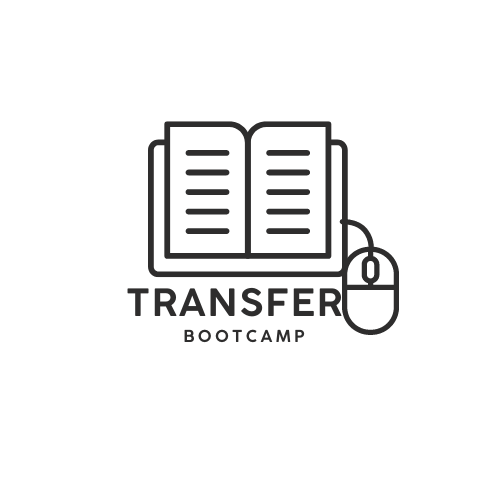The Evolution of Video Assessment
Rise of Video Assessment Platforms
The advent of video assessment platforms has revolutionized the way educators, corporate trainers, and e-learning professionals evaluate and support learner progress. Originally, these platforms gained traction in the corporate sector, where employers used video interview software to appraise candidates virtually, addressing the challenges posed by geographical distances or the need to screen applicants efficiently before in-person meetings (Workable).
The use of video assessments surged significantly during the pandemic. A study published by Forbes showed that before February 2020, less than 60% of companies were using or planning to use video interviewing. By October of the same year, that figure had risen to 89%, highlighting the rapid adoption of video technology for recruitment processes.
In the realm of education, these platforms have become integral to learning management systems (LMS) and mobile learning apps, providing a dynamic and interactive way to assess learners’ understanding, skills, and competencies. As virtual classroom platforms and e-learning authoring tools evolve, video assessments are increasingly adopted to facilitate a more personalized and engaging learning experience.
Benefits of Video Assessments
Video assessments offer a plethora of advantages for both the assessor and the learners. They are versatile tools that serve various sectors, allowing educators and corporate trainers to evaluate participants without the need for physical presence or synchronicity (We Create Problems). Here are some of the key benefits:
-
Efficiency and Volume: Video assessments can significantly reduce the time spent on evaluating learners or candidates. They enable the assessment of a higher volume of individuals, providing a more extensive talent or learner pool (We Create Problems).
-
Accessibility and Flexibility: These platforms allow for assessments to be conducted from any location and at any time, offering flexibility for individuals with varying schedules and responsibilities.
-
Consistency and Fairness: Video assessments ensure a standardized approach to evaluating all learners, which aids in maintaining uniformity in decision-making and supports fair assessment practices.
-
Long-Term Value: They provide valuable data over time, enabling assessors to track progress, gauge the efficacy of training or educational programs, and make informed decisions that contribute to organizational or educational growth (We Create Problems).
-
Enhanced Engagement: Video assessments can incorporate gamification in e-learning, interactive e-learning modules, and other engagement tools, making the assessment process more enjoyable and interactive.
-
Skill Demonstration: Learners can showcase practical skills and abilities that might be challenging to evaluate through traditional assessment methods.
Video assessment platforms are not just a fleeting trend but a significant step forward in harnessing technology for education and professional development. As we move towards a future where digital tools become increasingly prominent, understanding and utilizing video assessments will be crucial for those seeking to enhance their digital education platforms and tools.
Leading Video Assessment Platforms
As an educator or e-learning professional, you’re always looking for tools to enhance digital education. Video assessment platforms have emerged as a powerful resource, allowing for a more dynamic learning and evaluation process. Let’s explore some of the top platforms that can help you leverage video assessments in your learning environment.
Spark Hire
Spark Hire is a global interviewing platform that has been adopted by over 6,000 customers across more than 100 countries. It’s known for its simplicity, offering unlimited one-way and live recorded video interviews. This platform can be particularly useful for you if you’re looking to accelerate the hiring process and gain deeper insights into candidates, without the hassle of contracts or setup fees. It’s a tool that could fit well within learning management systems (LMS) for recruitment training modules.
VidCruiter
Originating from Canada, VidCruiter focuses on video interviewing to enhance the hiring process. The platform is designed to reduce the time to hire and improve candidate experience. With features like Recruitment Process Modelling, you can align the platform with your existing processes and quickly identify qualified applicants. This makes VidCruiter a potential addition to your suite of e-learning authoring tools, especially for creating scenarios that mimic real-life hiring processes.
HireVue
HireVue leverages artificial intelligence to provide an on-demand interview platform. Having conducted millions of video interviews and chat-based engagements, it streamlines the hiring process with remote video interviews and candidate skill assessments. The AI-driven task automation makes HireVue a top choice for optimizing recruitment and hiring quality candidates swiftly. Its integration capabilities with various ATS programs make it a solid choice for virtual classroom platforms.
Modern Hire
Established in Cleveland, OH, Modern Hire offers a SaaS hiring platform used by a vast number of global companies, including many from the Fortune 100. The platform provides tools for screening, assessment, interviewing, and workflow automation, all through advanced selection science. For organizations focused on hiring efficiency and improving the quality of hires, Modern Hire could serve as an asset within e-learning tools for corporate training.
Jobma
As a cloud-based digital interviewing platform, Jobma supports various formats including pre-recorded and live video interviews, as well as audio interviews and digital assessments. Its integration with job boards, skill assessment platforms, and ATS programs, complemented by AI-powered features to prevent unconscious bias, makes it a forward-thinking choice for your e-learning content management systems.
Each of these video assessment platforms offers unique features that can be leveraged to enhance the learning and assessment experience. Whether you’re an educator or involved in corporate training, integrating these tools into your educational approach can help create a more interactive and engaging learning environment. Consider the specific needs of your learning objectives and how these platforms can meet them, especially within the context of mobile learning and remote education.


Your article helped me a lot, is there any more related content? Thanks!
Thanks for sharing. I read many of your blog posts, cool, your blog is very good.
Thank you for your sharing. I am worried that I lack creative ideas. It is your article that makes me full of hope. Thank you. But, I have a question, can you help me?
Thank you for your sharing. I am worried that I lack creative ideas. It is your article that makes me full of hope. Thank you. But, I have a question, can you help me?